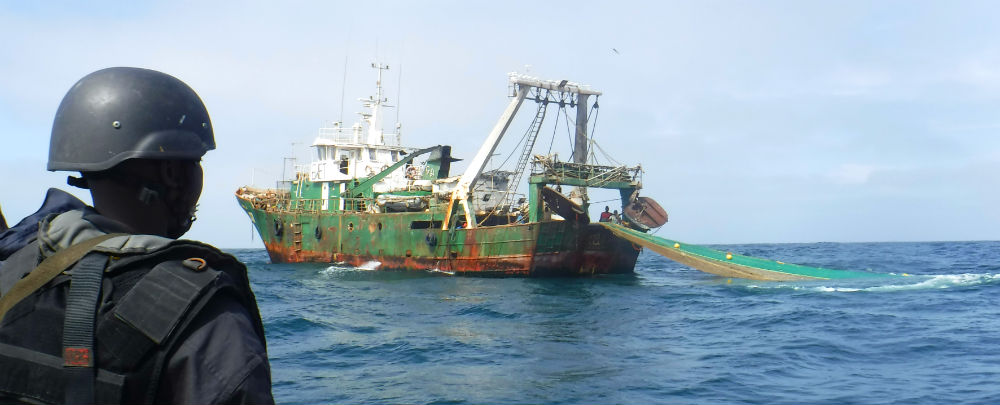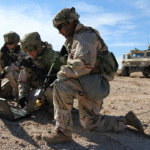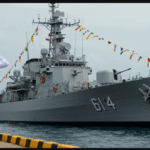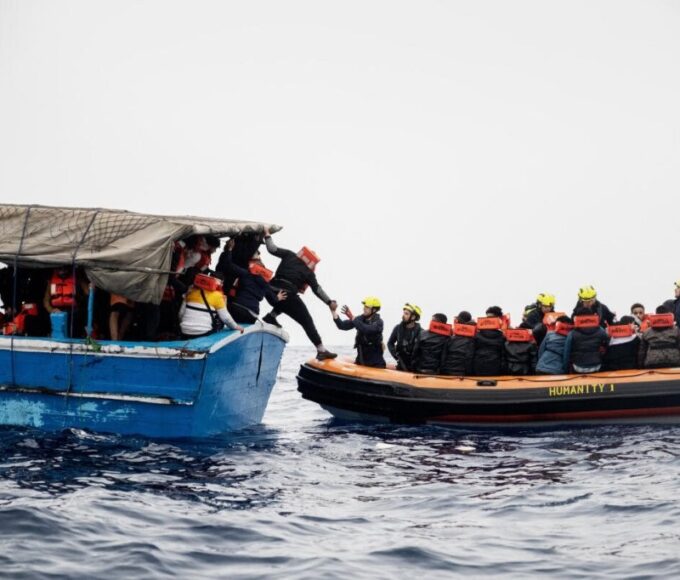Fisheries Protection and Naval Enforcement: The Overlooked Mission

Throughout the colonial and post-independence eras, African coastal states largely prioritized naval concerns such as territorial sovereignty and counter-piracy over sustainable fisheries protection. The focus lay on defense of port facilities and strategic harbors, not the vast economic lifeline represented by Exclusive Economic Zones (EEZs). Over time, value-rich fisheries—vital for national food security and livelihoods—were left poorly policed while foreign and industrial fleets exploited regulatory gaps and enforcement weaknesses.
- The Scale of the Crisis: IUU Fishing’s Devastating Toll
Illegal, Unreported, and Unregulated (IUU) fishing plagues African waters:
- In the Gulf of Guinea, IUU fishing accounts for an estimated 40%–60% of total catch, translating to $1 billion–$3 billion in losses annually, threatening the livelihoods of 7 million people dependent on the fishing sector.
- Across West Africa, the annual economic cost of illegal marine activity—including fisheries—reaches up to $1.95 billion, with household income losses estimated at $593 million per year.
Communities bear the brunt. In Sierra Leone, fishing contributes up to 12% of GDP and supports 500,000 jobs, while fish provides protein for around 80% of the population. Yet enforcement relies on a single patrol boat, often docked due to fuel shortages.
- Naval and Enforcement Responses Across Africa
South Africa
- The South African Navy officially lists fishery protection among its current operations, alongside counter-piracy and anti-smuggling efforts.
- Additionally, Operation Corona targets illegal fishing, poaching, and smuggling in territorial waters.
Sierra Leone
- In 2021, the Sierra Leonean Navy, supported by Sea Shepherd Global, seized five foreign-owned vessels, including Chinese and South Korean-flagged trawlers, for illegal fishing.
- However, enforcement capacity remains constrained by logistics and vessel availability.
Gabon
- Working with Sea Shepherd, Gabonese authorities arrested over 10 IUU vessels following joint patrols and drone-supported boarding operations, underscoring growing environmental enforcement.
Senegal
- According to local reports, Senegal has taken strong measures against repeat offenders: fines, impoundment, armed deployments, and arrests targeting unauthorized foreign trawlers.
- Regional Coordination and Technological Initiatives
- In West Africa, the Fisheries Committee for the West Central Gulf of Guinea (FCWC) established a Regional Monitoring, Control, and Surveillance Centre in May 2021. It shares automatic identification system (AIS) data and helps coordinate enforcement among Benin, Côte d’Ivoire, Ghana, Liberia, Nigeria, and Togo.
- The United Nations’ IMO supports a network linking 24 West African coastal states with enforcement, maritime security agencies, and international bodies to combat IUU fishing.
- Tech-driven pilot projects are underway: Global Fishing Watch and Trygg Mat Tracking are partnering with Senegal, Ghana, Côte d’Ivoire, Kenya, and the FCWC to provide satellite tracking, analytics, and port control training, improving risk-based inspections under the Port State Measures Agreement (PSMA) framework.
- Yet, transparency remains a challenge. In Cameroon, bureaucratic delays, poor collaboration between agencies, and limited funding hinder effective vessel monitoring and enforcement of fishing laws.
- Legal Instruments and International Commitments
- The Port State Measures Agreement (PSMA)—a 2009 FAO treaty—aims to block illegal catches from entering the marketplace by empowering ports to deny access to non-compliant fishing vessels. It entered into force in 2016.
- Still, some key African states—including Sierra Leone—have yet to ratify the agreement, limiting its regional enforcement impact.
- Observers stress that without flag-state cooperation, blue economy targets are undermined. Past efforts, like Spain tightening penalties for its nationals in 2015, and China’s partial blacklisting of illicit operators, show that external pressure and reform are possible.
Oceans sustain economies, communities, and ecosystems—but without vigilant naval enforcement, they become zones of plunder rather than protection. Fisheries protection is not a marginal naval duty—it is core to Africa’s food security, livelihoods, and sovereignty. The critical question now is: can African navies elevate this mission from the periphery to the frontline of maritime strategy?
King Richard Igimoh, Group Editor ALO
King Richard Igimoh, Group Editor African Leadership Organisation is an award-winning journalist, editor, and publisher with over two decades of expertise in political, defence, and international affairs reporting. As Group Editor of the African Leadership Organisation—publishers of African Leadership Magazine, African Defence & Security Magazine, and Africa Projects Magazine—he delivers incisive coverage that amplifies Africa’s voice in global security, policy, and leadership discourse. He provides frontline editorial coverage of high-profile international events, including the ALM Persons of the Year, the African Summit, and the African Business and Leadership Awards (ABLA) in London, as well as the International Forum for African and Caribbean Leadership (IFAL) in New York City during the United Nations General Assembly.
Recent Posts
Categories
- Air & Aerospace16
- Border Security15
- Civil Security4
- Civil Wars4
- Crisis5
- Cyber Security8
- Defense19
- Diplomacy19
- Entrepreneurship1
- Events5
- Global Security Watch6
- Industry8
- Land & Army8
- Leadership & Training5
- Military Aviation5
- Military History27
- Military Speeches1
- More1
- Naval & Maritime9
- Resources2
- Security12
- Special Forces1
- Systems And Technology9
- Tech6
- Uncategorized3
- UNSC1
- Veterans6
- Women in Defence9
Related Articles
THE RED SEA AND HORN OF AFRICA: HOTSPOTS OF MARITIME CONFLICT
By December 2025, the Red Sea and the Horn of Africa sit...
ByKing Richard Igimoh, Group Editor ALODecember 23, 2025NAVAL FORCES EMERGE AS LIFELINES IN GLOBAL HUMANITARIAN RESCUE MISSIONS
Modern navies are increasingly defined not only by their combat power but...
ByKing Richard Igimoh, Group Editor ALONovember 20, 2025THE STRATEGIC IMPORTANCE OF DJIBOUTI’S PORTS
Djibouti, a small nation located on the Horn of Africa, commands an...
ByKing Richard Igimoh, Group Editor ALOOctober 21, 2025SUBMARINE PROGRAMMES IN AFRICA: PRESTIGE OR NECESSITY?
Africa’s naval power has long rested on surface vessels, yet the rise...
ByKing Richard Igimoh, Group Editor ALOSeptember 23, 2025












